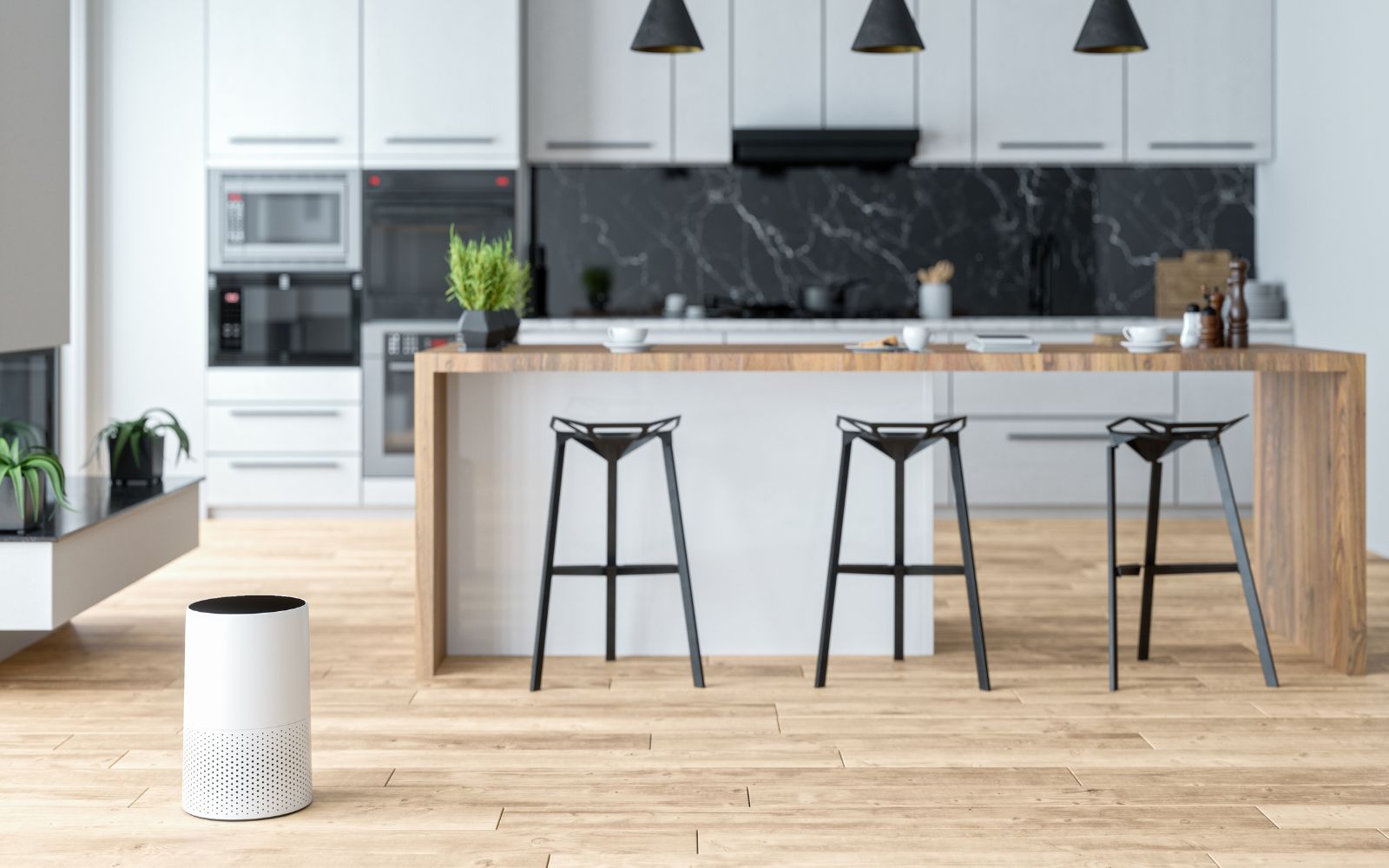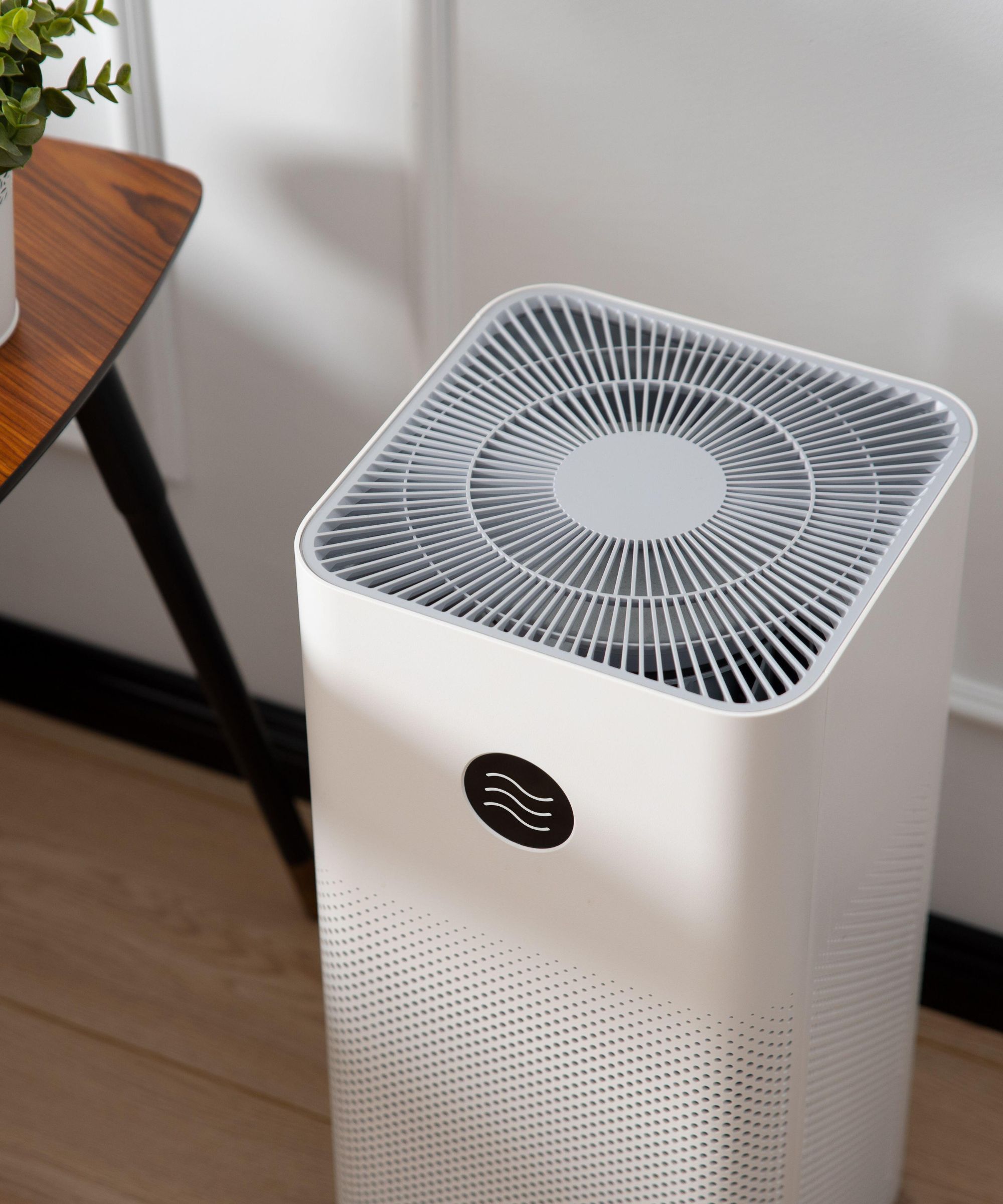Are air purifiers worth it? Experts debate the effectiveness of the popular appliance
Air purifiers are the latest 'must-have' – but actually, how beneficial are these appliances? Air quality experts discuss


Design expertise in your inbox – from inspiring decorating ideas and beautiful celebrity homes to practical gardening advice and shopping round-ups.
You are now subscribed
Your newsletter sign-up was successful
Want to add more newsletters?

Twice a week
Homes&Gardens
The ultimate interior design resource from the world's leading experts - discover inspiring decorating ideas, color scheming know-how, garden inspiration and shopping expertise.

Once a week
In The Loop from Next In Design
Members of the Next in Design Circle will receive In the Loop, our weekly email filled with trade news, names to know and spotlight moments. Together we’re building a brighter design future.

Twice a week
Cucina
Whether you’re passionate about hosting exquisite dinners, experimenting with culinary trends, or perfecting your kitchen's design with timeless elegance and innovative functionality, this newsletter is here to inspire
It is no secret that air purifiers are the must-have appliance of the moment. Though, it's initially easy to see its appeal.
This increasingly-popular gadget allows you to gain more control over the air you breathe – removing unwanted pollutants and reducing the risk of mold in your home.
If you're thinking of investing in one of the best air purifiers on the market, you're already likely to know about the benefits of this appliance. However, as the demand rises, it's inevitable to wonder, are air purifiers worth it?
Many people claim that a humidifier will change their home, and in many cases, it can be hard to go back to life without one. But are they as powerful in every home? We spoke to air quality experts who decoded their real value.

Are air purifiers worth it?
'The average person takes 20,000 breaths per day and spends around 90 percent of their time indoors. What's in our air matters because it’s one of the greatest routes of exposure we have,' says Michael Rubino, the author of The Mold Medic, an Expert’s Guide on Mold Removal, and founder of Home Cleanse.
'If the air is filled with contaminants like mold spores, mycotoxins, pollen, viruses, VOCs, or bacteria, that can directly impact our health. Air purifiers help to remove these pollutants so that they’re not circulating through our indoor spaces and making their way into our bodies.'
Michael adds that many modern homes are built with net-zero energy efficiency in mind – meaning that there’s minimal airflow between indoor and outdoor spaces. Therefore, it is down to the individual to find a way to work to remove contaminants from the air – and this often involves using one of many best dehumidifiers available.
Design expertise in your inbox – from inspiring decorating ideas and beautiful celebrity homes to practical gardening advice and shopping round-ups.

Tony Abate, a certified indoor environmentalist designated by the American Air Quality Council and Vice President at AtmosAir Solutions, agrees that air purifiers can be effective. However, their range is limited. He suggests that you should look to make upgrades to your heating and air conditioning types instead.
'Air purification improvements in a home’s HVAC system are not only beneficial for health and wellness but also for conserving energy and reducing costs,' Tony says.
'The common home HEPA filter is effective, but adding bi-polar ionization tubes to your HVAC system provides an extra measure of protection. Why? The common HEPA filter used in a home is reactive; the virus or germ must pass through the filter to be effective. BPI tubes are proactive, emitting ions into the air that continually seek, attack, and neutralize airborne contaminants in your home.'
The expert also explains that adding bi-polar ionization tubes to your HVAC system can help prevent the spread of airborne viruses, germs, mold, and volatile organic compounds, which is particularly important for those who live with allergies.

Is there a downside to air purifiers?
Yes, despite their benefits, not all air purifiers are equipped to properly filter the air in our homes. 'The result is someone spending money on a machine that will not adequately filter the air and, instead, just blows it straight back into the environment,' Michael says.
Therefore, when choosing a machine, you should ensure it is able to remove the smallest contaminants possible. 'Many of the microscopic particles are measured in a unit called microns. Machines with top-notch technology should be able to eliminate these particles from the air, so they don't just blow right back into the environment,' the expert says.
You should also look to ensure your appliance meets HEPA status, meaning that they remove 99.97% of particles as small as 0.3 microns. 'If it can remove smaller particles more of the time or other contaminants like gases, that's even better.'
Do air purifiers make you healthier?
Yes, if you choose an effective air purifier, it will likely support your ongoing wellness at home – and in some cases, prevent problems from arising.
'The contaminants in our home are small enough to be inhaled. Some are so tiny that they can bypass the lungs and head straight into the bloodstream. If high volumes of contaminants exist within a building, that results in increased levels entering our body every time we take a breath. Over time, this can lead to our toxic load increasing, triggering a long list of adverse health reactions,' Michael says.
Air purifiers work to lower the number of contaminants in your space by improving your indoor air quality so that you're not constantly breathing toxic air. The cleaner our air is, the more it will support your ongoing wellness. You can shop for the best deals below.

Megan is the Head of Celebrity Style News at Homes & Gardens, where she leads the celebrity/ news team. She has a history in interior design, travel, and news journalism, having lived and worked in New York, Paris, and, currently, London. Megan has bylines in Livingetc, The Telegraph, and IRK Magazine, and has interviewed the likes of Drew Barrymore, Ayesha Curry, Michelle Keegan, and Tan France, among others. She lives in a London apartment with her antique typewriter and an eclectic espresso cup collection, and dreams of a Kelly Wearstler-designed home.